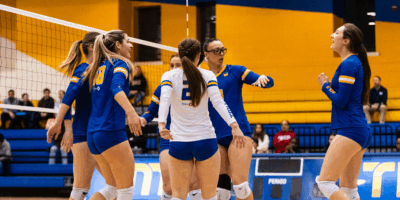By Alexandra Bosanac
Opposing ideologies between the Ryerson Free Press’ masthead and its publisher caused the paper’s collapse last fall, according to a newly released statement from two former editors.
For the first time since the newspaper folded last October, former editor-in-chief Nora Loreto and features and opinions editor James Clark addressed the group’s quarrels with the Continuing Education Students’ Association of Ryerson (CESAR), the union representing part-time and continuing education students, in a lengthy editorial in another campus newspaper.
“As the leadership moved rightward, it increasingly questioned the newspaper’s relevance to its readers and the wider membership,” it said.
“Based on our own history with The Ryerson Free Press, we can identify both internal and external challenges that we believe contributed to the newspaper’s mounting problems… By its very nature, progressive media challenges mainstream ideas, often attracting criticism and generating controversy,” it said.
According to Shinae Kim, CESAR’s president, the union was unwilling to foot the bill should the paper find itself in legal hot water over its unapologetically left-wing mandate, which tackled a range of social justice issues that extended well beyond the boundaries of Ryerson’s campus.
“The nature of student publishing is that it is vulnerable to legal action,” Kim said in an email to The Eyeopener.
Over the years, The Free Press dealt with numerous threats of legal action, which Loreto and Clark acknowledge became a growing concern for CESAR following a change in leadership in 2009. The union’s fears materialized in 2012 after a Toronto lawyer sued CESAR for defamation stemming from a 2009 article written by Clark.
In March 2012, Andrew Monkhouse, a lawyer with a practice in Toronto, sought $25,000 in damages over a 2009 photo that mistakenly identified him in a leafleter at an event to protest the Canadian Federation of Students.
The Free Press issued a correction online and in a subsequent issue, but Monkhouse complained that the incorrect version of the story was still being hosted on a digital publishing site. CESAR eventually reached a settlement with Monkhouse out-ofcourt, the details of which are being kept confidential.
Another point of contention for the board, Kim added, was that masthead was not staffed exclusively by Ryerson students.
Kim declined to speculate on the likelihood of a re-launch, but said the board intends to raise the issue with its members later this year, but not without a few conditions.
The new paper would be required to adopt a new mandate whose focus would be on issues directly affecting the community of part-time students.
“If or when The RFP is relaunched, the paper would need passionate Ryerson students with commitment to student issues,” she said
Meanwhile, speculation continues to swirl around the sudden departure of Loreto’s successor, Clare O’Connor. O’Connor took the reigns as editor-in-chief in July 2012 but left suddenly after overseeing the production of only two issues.
“I know she didn’t have a good time with the way CESAR treated her,” said Loreto. “I can imagine something happened but I’ve never asked what happened so I can’t comment.”
Since The Free Press’ mandate barred it from publishing without an editor-in-chief presiding, O’Connor’s resignation sparked a chain reaction that saw the departure of all the other editors, Loreto said in an interview.
No explanation was offered to contributors either, according to a former writer.
“They’ve (CESAR) kept it [what was happening] under wraps. CESAR doesn’t like to share any information. It’s really weird, they keep everything to themselves,” said the writer.
*This article has been edited since it’s original publication.*












Leave a Reply